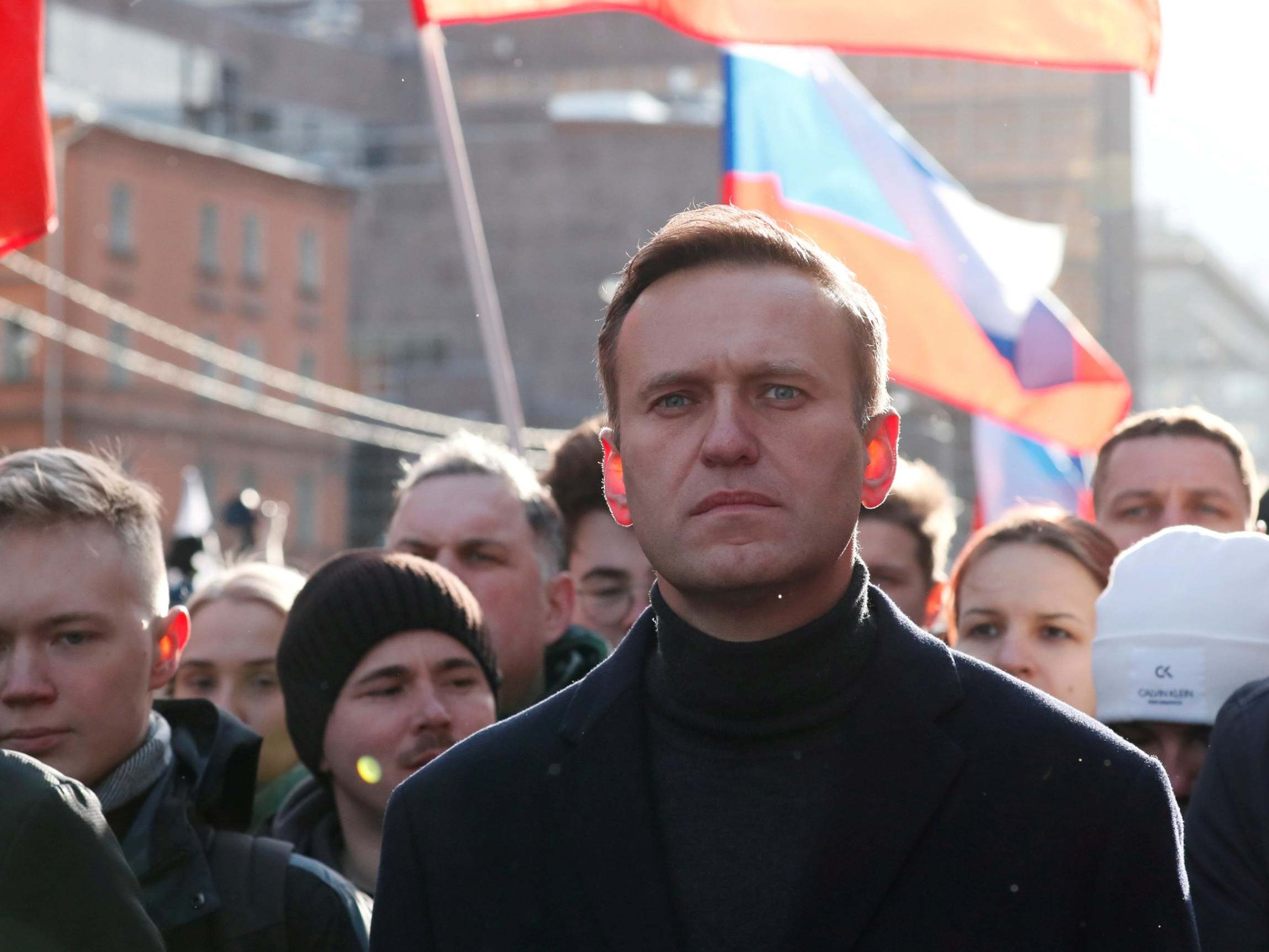Alexei Navalny: Russia brushes off calls for investigation into alleged poisoning as ‘empty noise’
‘We do not intend to take it seriously,’ says Kremlin spokesman

The Kremlin has brushed off allegations that Russian opposition leader Alexei Navalny, who is in a coma in a German hospital, was poisoned and said there were no grounds for a criminal investigation because the politician's condition may have been triggered by other causes.
The insistence by the government that Mr Navalny wasn't necessarily poisoned — comments amplified by Russian doctors — came a day after German doctors said tests indicated that he was poisoned and elicited outrage from his allies, who say the Kremlin was behind the illness of its most prominent critic.
Kremlin spokesman Dmitry Peskov dismissed the accusations, saying they “absolutely cannot be true and are rather an empty noise.”
“We do not intend to take it seriously,” Mr Peskov said.
Mr Peskov claimed there were no grounds for launching a criminal investigation into Mr Navalny's condition, saying that it could have been triggered by a variety of causes.
“If a substance is found, and if it is determined that it is poisoning, then there will be a reason for an investigation,” he said.
Mr Navalny, a politician and corruption investigator who is one of Vladimir Putin's fiercest critics, fell ill on a flight back to Moscow from Siberia on Thursday and was taken to a hospital in the city of Omsk after the plane made an emergency landing.
Over the weekend he was transferred to the Charite hospital in Berlin, where doctors on Monday said they have found indications of “cholinesterase inhibitors” in his system.
Cholinesterase inhibitors act by blocking the breakdown of a key chemical in the body, acetycholine, that transmits signals between nerve cells. Mr Navalny is being treated with the antidote atropine.
His wife, Yulia Navalnaya, has been visiting her husband daily and made no comment to reporters as she arrived Tuesday.
Chancellor Angela Merkel personally offered Germany's help in treating Mr Navalny and has called for a full Russian investigation.
France's foreign ministry echoed her sentiment on Tuesday, saying in a statement that “it is essential that the Russian authorities carry out a swift and transparent investigation” into what it called a “criminal act perpetrated against a major player in Russian political life.”
US deputy secretary of state Stephen Biegun, who visited Russia on Tuesday and met with foreign minister Sergey Lavrov, “expressed deep concern” about Mr Navalny's condition and “the impact on Russian civil society of reports of his poisoning,” according to a tweet by Rebecca Ross, spokeswoman at the US Embassy in Moscow.
Charite doctors said Monday that Mr Navalny had undergone extensive examination by a team of physicians and that “clinical findings indicate poisoning with a substance from the group of cholinesterase inhibitors.”
Cholinesterase inhibitors are a broad range of substances that are found in several drugs, but also pesticides and nerve agents. Doctors said the specific substance to which Mr Navalny was exposed isn't yet known but that a further series of comprehensive tests had been started.
Russian doctors on Monday rejected the suggestion Mr Navalny was poisoned, saying they tested the politician for cholinesterase inhibitors and didn't find any.
Mr Peskov said Tuesday that doctors in Omsk, a city in Siberia where Mr Navalny was first hospitalised, noted “lowered levels of cholinesterase” — an obstruction of cholinesterase enzymes can be detected by blood tests, experts say — in his body in a matter of “hours” after he was brought in.
However, the Kremlin spokesman insisted, a drop in cholinesterase levels can be triggered by a number of causes, including by “taking various medications.”
Mr Navalny's spokeswoman, Kira Yarmysh, on Tuesday said the government's reluctance to launch an investigation was expected.
“It was obvious that the crime would not be properly investigated and a culprit found. However, we all know perfectly well who that is,” Mr Yarmysh tweeted.
Associated Press
Join our commenting forum
Join thought-provoking conversations, follow other Independent readers and see their replies
Comments
Bookmark popover
Removed from bookmarks